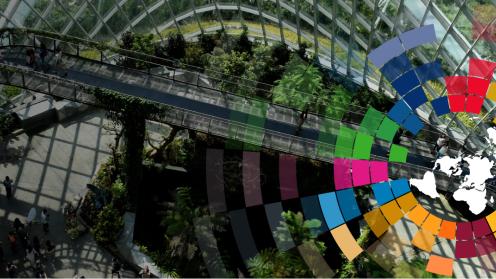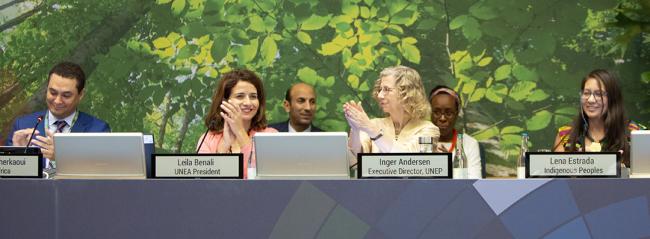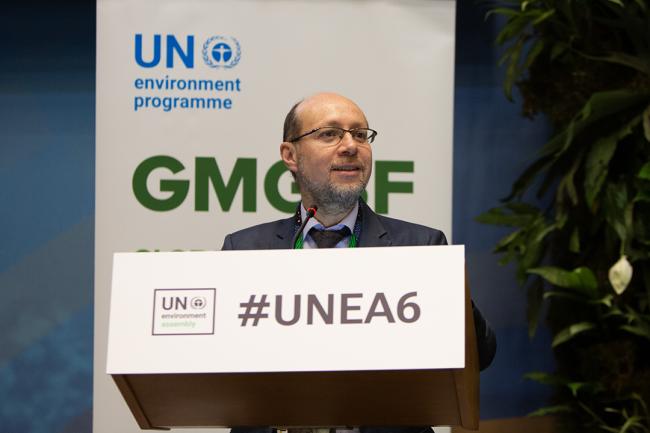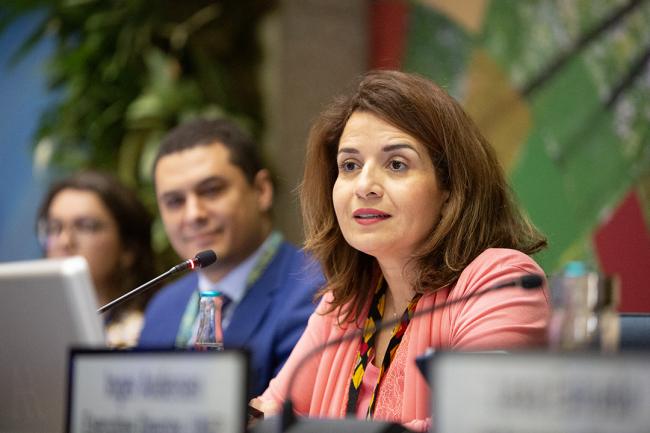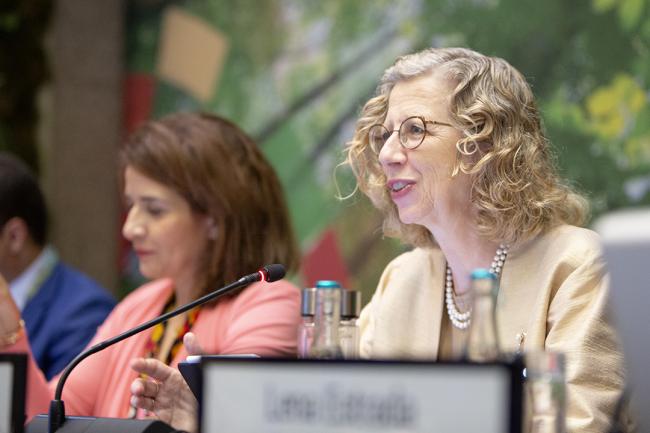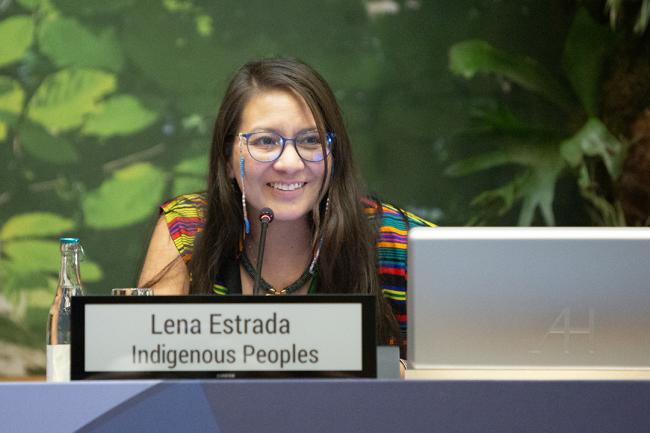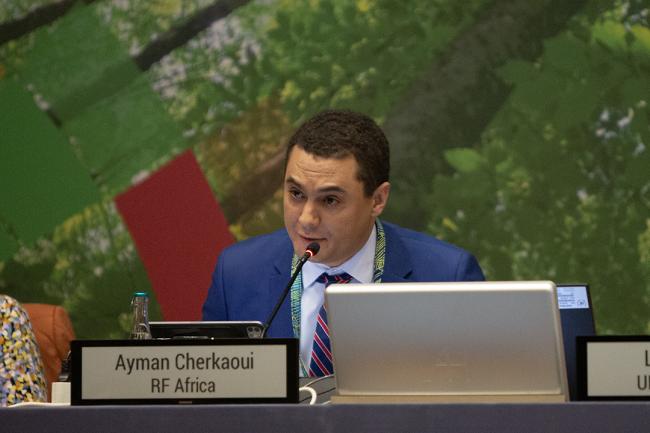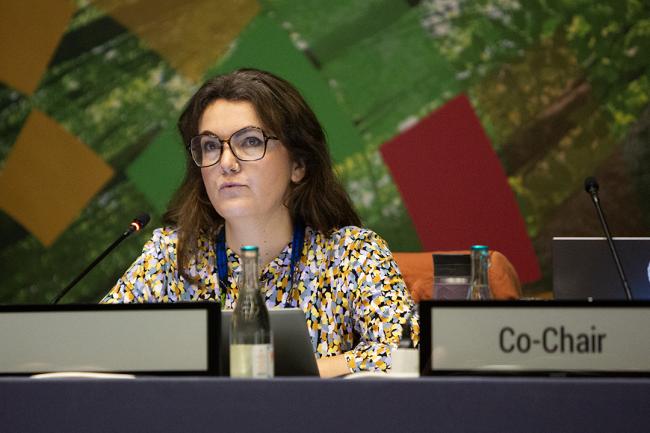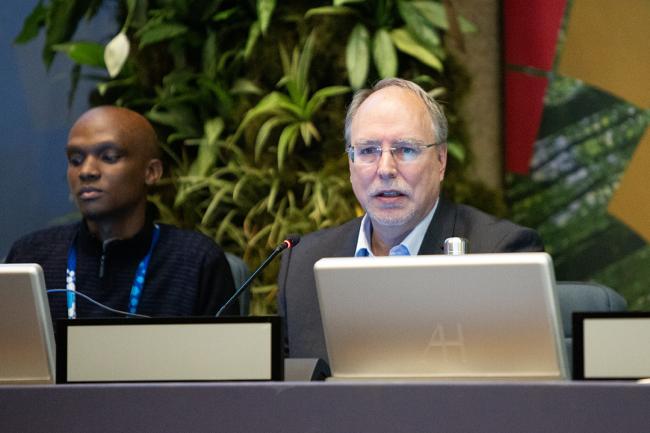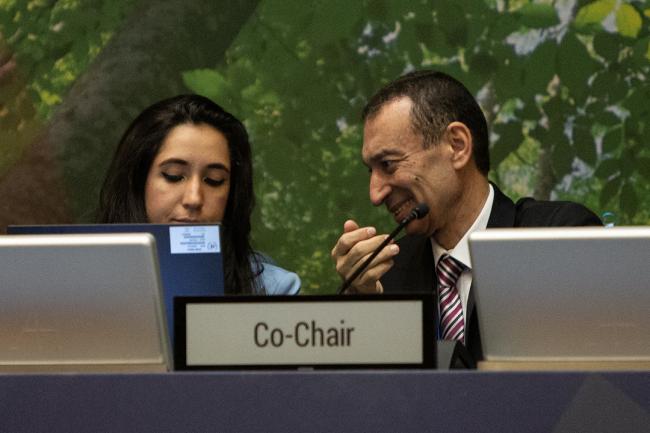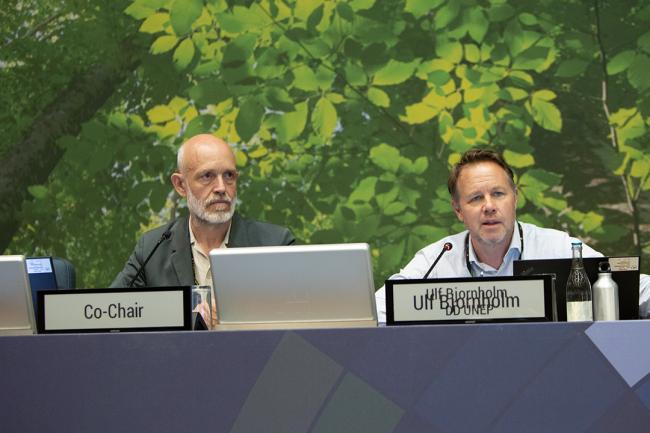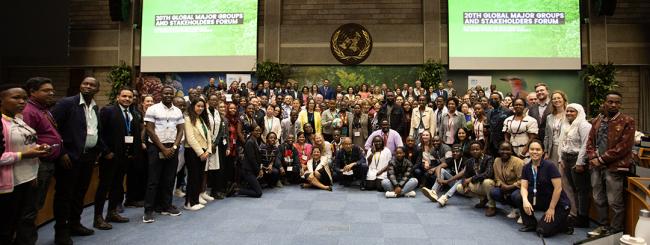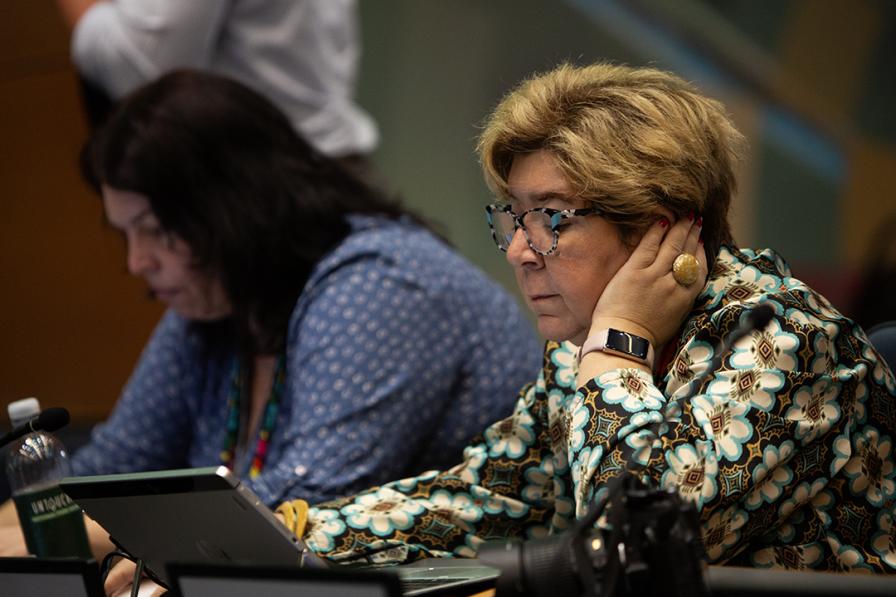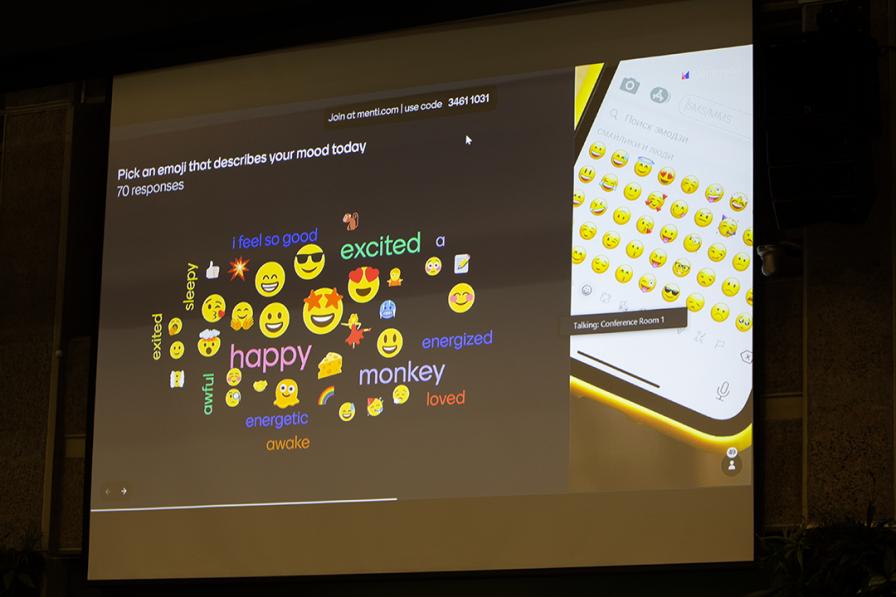Following a first day of “housekeeping” that developed a shared understanding of the positions of the Major Groups and Stakeholders (MGS) and finetuned input on the draft resolutions of the sixth session of the United Nations Environment Assembly (UNEA-6), discussions on Sunday were organized around a series of informal dialogues with key players in international environmental governance.
In the morning, UN Special Rapporteur on toxics and human Rights, Marcos Orellana, emphasized that MGS are instrumental in tackling some of the world’s most intractable environmental challenges through their contribution to evidence gathering and documentation, awareness raising and advocacy. Expressing concern that the recently adopted Global Framework on Chemicals does not go far enough in making use of existing legal frameworks and enforcement mechanisms, he urged MGS to support human rights-based approaches to bridge this gap, such as an upcoming thematic report on gender and toxics, country visits to monitor chemicals-related incidents, and ongoing work on toxic release and transfer registries.
In the afternoon, MGS held an exchange with UNEA-6 President, Leila Benali, and UNEP Executive Director, Inger Andersen. Benali stressed that since becoming UNEA President, she has consistently engaged with MGS because of their valuable dual role as think tanks and watch dogs. She described the timing of UNEA-6 as a golden opportunity to coordinate global efforts to tackle the current spate of complex geopolitical conflicts and crises.
Underlining that multilateralism is the only viable approach to tackle global challenges, Andersen further noted the contribution of MGS as a multistakeholder platform that crosses boundaries and factions, urging them to be part of the demanding chorus that “asks for ambition, calls for accountability and helps to deliver.”
Both leaders further acknowledged the role of MGS in helping identify emerging crises and fostering environmental governance approaches that are effective and inclusive, and based on strong science, Indigenous Peoples’ wisdom, intergenerational knowledge, equity, and rights.
A final dialogue session introduced an emerging “Group of Friends” of UNEP Major Groups and Stakeholders aimed at facilitating meaningful MGS participation in UNEP processes and environmental governance more broadly. GMGSF20 Co-Facilitator Patrizia Heidegger clarified that the group would also serve as a point of contact between Member States and MGS in the intersessional periods to engage in discussions, find synergies, and increase collaboration. Most Member States and MGS in attendance expressed willingness to join the group, with speakers also underlining the importance of meaningful engagement with new groups, such as the creative arts sector, and providing more space for observer intervention.
In a separate session in the morning, Pierre Boileau, Head, UNEP Global Environment Outlook (GEO), outlined preparations towards GEO-7 in 2026, noting it aims to respond to key messages from GEO-6 by: focusing on solutions; producing a clear analysis of how transformation happens and how to make it happen intentionally; and examining entrenched barriers to change, such as conflicts of interest.
MGS also engaged in several discussion rounds recapping key issues to be included in their joint statement to UNEA-6. Discussions in the morning called for strengthening language on, inter alia: social and environmental impacts of armed conflicts and the link between peace and security; economic transformation paradigms; food systems and one health approaches; and the role of citizen science and Indigenous knowledge systems. Speakers also reiterated their opposition to references to solar radiation modification and other geoengineering approaches, calling for upholding the precautionary principle and reinforcing independent science-policy advisory mechanisms to counteract vested interests.
A final organizational session in the afternoon previewed arrangements for MGS participation at UNEA-6, also highlighting diverse side events, capacity-building sessions, and other opportunities for networking and engagement to take place throughout the week. Thanking participants for the fruitful discussions, Dalia Márquez and Mohamed Abdelraouf, Major Groups Facilitating Committee Co-Chairs, closed the meeting at 5.30pm.
